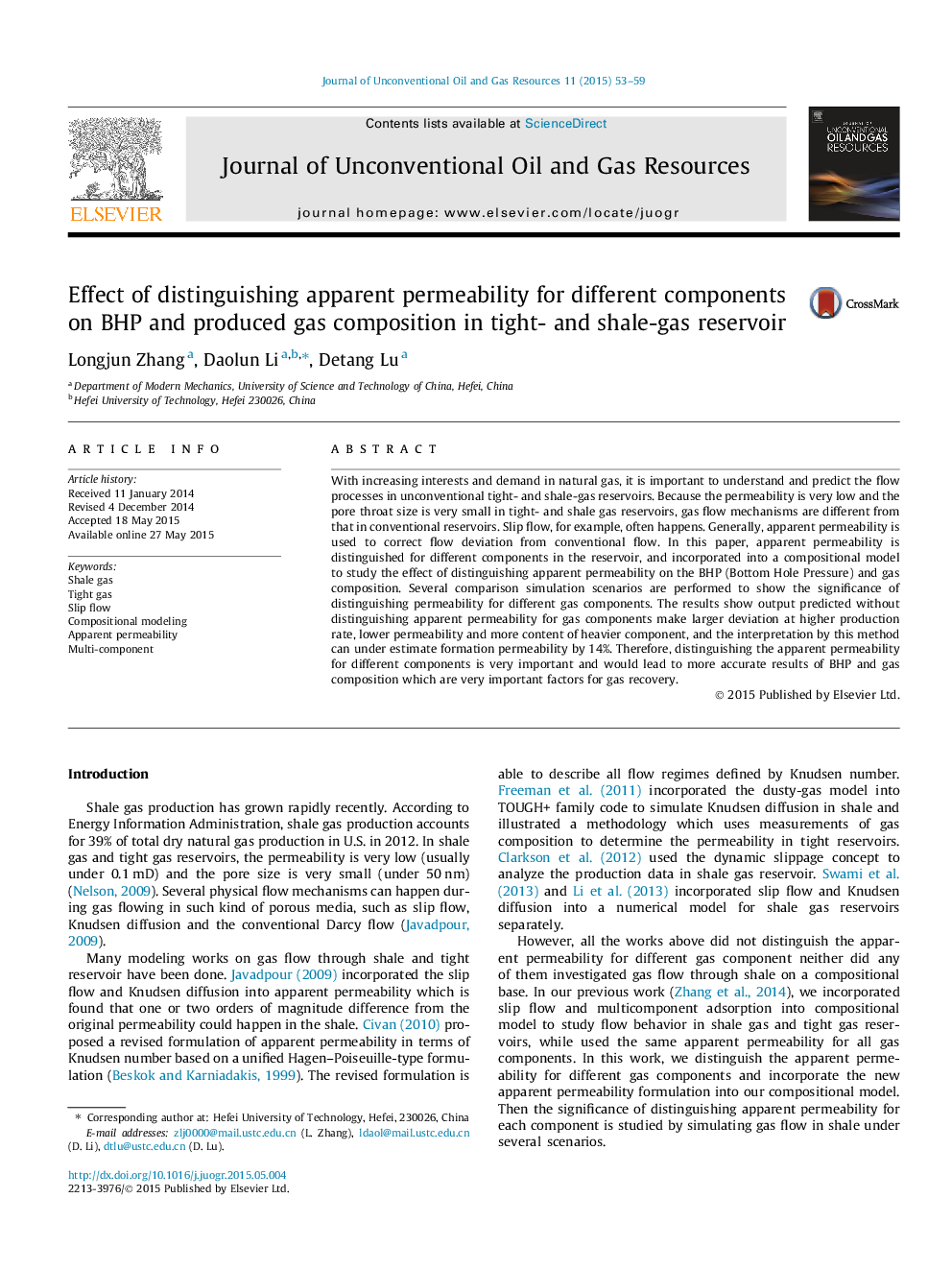| کد مقاله | کد نشریه | سال انتشار | مقاله انگلیسی | نسخه تمام متن |
|---|---|---|---|---|
| 8127635 | 1522951 | 2015 | 7 صفحه PDF | دانلود رایگان |
عنوان انگلیسی مقاله ISI
Effect of distinguishing apparent permeability for different components on BHP and produced gas composition in tight- and shale-gas reservoir
دانلود مقاله + سفارش ترجمه
دانلود مقاله ISI انگلیسی
رایگان برای ایرانیان
کلمات کلیدی
موضوعات مرتبط
مهندسی و علوم پایه
علوم زمین و سیارات
ژئوشیمی و پترولوژی
پیش نمایش صفحه اول مقاله

چکیده انگلیسی
With increasing interests and demand in natural gas, it is important to understand and predict the flow processes in unconventional tight- and shale-gas reservoirs. Because the permeability is very low and the pore throat size is very small in tight- and shale gas reservoirs, gas flow mechanisms are different from that in conventional reservoirs. Slip flow, for example, often happens. Generally, apparent permeability is used to correct flow deviation from conventional flow. In this paper, apparent permeability is distinguished for different components in the reservoir, and incorporated into a compositional model to study the effect of distinguishing apparent permeability on the BHP (Bottom Hole Pressure) and gas composition. Several comparison simulation scenarios are performed to show the significance of distinguishing permeability for different gas components. The results show output predicted without distinguishing apparent permeability for gas components make larger deviation at higher production rate, lower permeability and more content of heavier component, and the interpretation by this method can under estimate formation permeability by 14%. Therefore, distinguishing the apparent permeability for different components is very important and would lead to more accurate results of BHP and gas composition which are very important factors for gas recovery.
ناشر
Database: Elsevier - ScienceDirect (ساینس دایرکت)
Journal: Journal of Unconventional Oil and Gas Resources - Volume 11, September 2015, Pages 53-59
Journal: Journal of Unconventional Oil and Gas Resources - Volume 11, September 2015, Pages 53-59
نویسندگان
Longjun Zhang, Daolun Li, Detang Lu,